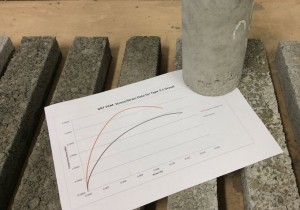The Queensland University of Technology (QUT) has partnered with Global Road Technology (GRT) to develop spray-on, “instant” roads that can make dirt roads as hard-wearing as bitumen.

Image credit: globalroadtechnology.com
Researcher Mariam Darestani from QUT’s Science and Engineering Faculty said the research aimed to produce new polymers for building long-lasting roads that will deliver health and safety benefits for mine sites, regional towns and third-world countries.
She said these polymers will combine with water applied by tankers or helicopters to deliver a product solution for creating safe, low-cost roads that can survive adverse weather and reduce the amount of airborne dust for neighbouring workers and communities.
GRT head of research and development Dr Babak Abtahi said the partnership is expected to find more applications for the polymer solutions and change the road infrastructure industry. He said different solutions were required depending on the environment, including soil conditions, temperature and rainfall.
“Given the vast types of soil we apply GRT technology to around the world, it is imperative we continue to develop different product solutions,” Dr Abtahi said.
GRT has already proven the success of its technology by building this type of roads both in Australia and oversees.
By partnering with QUT, the company is confident it will be able to advance its technology through research into the varied performance of polymers in a range of geographic locations.
Dr Darestani said their ongoing research into the interaction between soil and polymer had allowed the team to understand why a polymer worked with some soil types but failed to deliver the desired mechanical strength in other soil types.
“GRT operates by considering the many different soil types, and the characteristics that they respond well to. We are also working to develop products that work with most soil types,” Dr Darestani said.
“Polymers are very different; GRT knows this and is one of the first companies internationally to develop solutions and formulate products for different applications, whilst investing in the education of others.”
Dr Darestani said the partnership was viewed by both QUT and GRT as a long-term investment in the future generation of civil and industrial engineers.
“We are educating young engineers and training on the benefits of polymers over traditional construction materials, with the view that they will go on to advocate this new technology and hopefully create change within the industry,” Dr Darestani said.
“We are looking to incorporate this content into the curriculum in the future, where engineers can be educated on the future of infrastructure technology through real world examples. We are essentially pioneering this movement towards polymers in the next generation of engineers.”




















